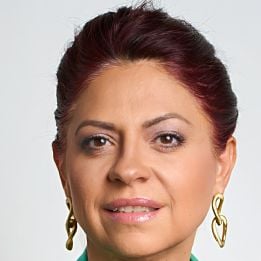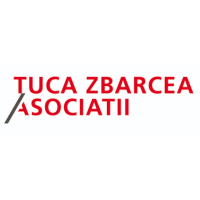

Legal director | BRD - Groupe Societe Generale




Cristina Vilcu
Legal director | BRD - Groupe Societe Generale
Team size: circa 65
What are the most significant cases, projects and/or transactions that you and/or your legal team have recently been involved in?
One of the most significant projects I have been involved recently has been the comprehensive restructuring and optimisation of the bank’s operational framework across all departments. The initiative aims to streamline processes, eliminate inefficiencies, and align the institution’s governance and compliance structures with new strategic priorities.
My team played a pivotal role in this transformation – not only by ensuring full regulatory alignment and contractual soundness throughout the process, but also by acting as an enabler of change. We advised on the redesign of internal policies, supported inter-departmental process mapping, and redefined legal workflows to increase efficiency and transparency.
The project required balancing legal rigor with pragmatic business insight, ultimately reinforcing the bank’s operational resilience, cost efficiency, and capacity to adapt swiftly to regulatory and market developments.
How do you approach managing legal aspects during periods of instability or crisis to ensure the organisation’s resilience?
My approach is rooted in flexibility, proactive engagement, and close partnership with the business. During periods of instability, the legal function must evolve from a traditional gatekeeper role into a strategic advisor – anticipating risk, facilitating decision-making, and enabling continuity of operations.
I prioritise open communication with senior management and key departments to maintain a clear understanding of emerging challenges and to co-create legally sound yet commercially viable solutions. Agility and responsiveness are essential: adapting legal strategies in real time to shifting circumstances while safeguarding compliance and reputation.
Equally important is fostering a culture of trust and resilience within the team. By ensuring that each member understands the broader business context, we strengthen our capacity to support the organisation holistically – not merely by mitigating risk, but by enabling progress even amid uncertainty.
AI has been taken seriously as a potentially revolutionary technological change in the legal world for a number of years now. Has it had a meaningful impact in how your legal team works in this time?
Artificial intelligence has already begun to reshape the legal function, though its true potential is still unfolding. In our legal department, we view AI not as a tool of convenience, but as a catalyst for a fundamental redefinition of how lawyers think, analyse, and deliver value.
So far, AI has primarily supported us in the more traditional areas – accelerating contract drafting or automating review processes. Yet, the next wave is far more transformative. We are now exploring AI’s capacity to support litigation strategy: identifying the most persuasive arguments, mapping vulnerabilities in opposing cases, predicting success probabilities, and proposing data-driven strategies that combine legal precedent with behavioural insights. This analytical depth allows us to refine our decision-making and resource allocation in ways that were previously impossible.
However, one of the greatest challenges for legal professionals is not the technology itself, but learning how to prompt effectively. Unlike conventional legal reasoning, AI requires precision in asking the right questions — the quality of the output depends entirely on the clarity, structure, and logic of the prompt. For many lawyers, this represents a profound cultural shift: moving from being information gatekeepers to becoming strategic curators of questions.
To prepare for this change, we have begun to build “prompting literacy” within the legal team – developing frameworks and examples of effective AI interaction, training our colleagues to think algorithmically without losing their legal intuition.
Ultimately, AI’s real revolution will not come from automating what lawyers already do, but from expanding the way we think – transforming legal teams from reactive advisors into predictive, data-intelligent business partners.
What is a cause, business or otherwise, that you are passionate about? Why is this?
I am deeply committed to strengthening the professional community of legal advisors within the banking sector. As a member of the board of our Association of Banking Legal Advisors, I dedicate a significant part of my time to initiatives that promote knowledge sharing, continuous development, and collaboration among peers.
This work reflects my conviction that the legal profession, especially within highly regulated industries such as banking, can only remain relevant and resilient through collective growth. By creating spaces for dialogue, training, and networking, we empower legal professionals to anticipate change, adapt to regulatory evolution, and raise the overall standard of practice in our field.
Through the association, I actively contribute to building programs that connect practitioners across institutions, encourage the exchange of best practices, and provide mentorship opportunities for younger professionals. These projects are not only about technical expertise but also about fostering a sense of shared purpose and belonging within the legal community.
For me, giving back to the profession is both a responsibility and a source of inspiration. It allows me to translate individual experience into collective progress – ensuring that the legal function in banking remains not just compliant, but forward-looking, innovative, and ethically grounded.
Legal director | BRD - Groupe Societe Generale